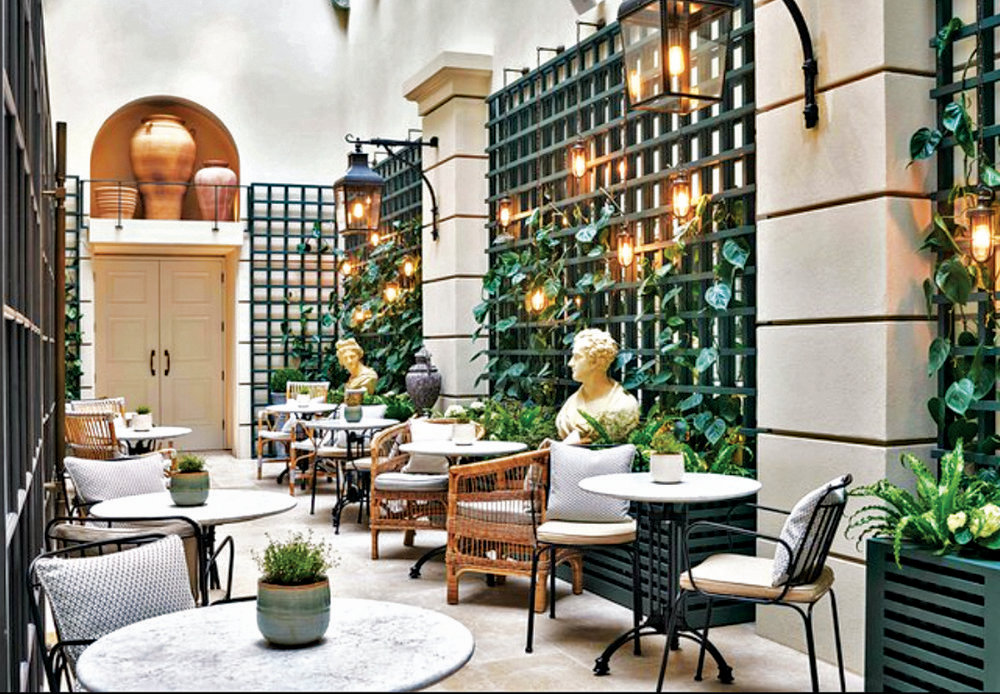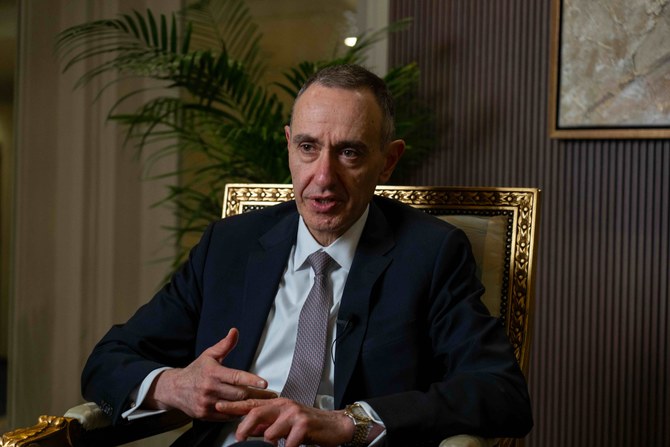RIYADH: Saudi Arabia could double the number of hotel rooms in the next 10 years to meet the rising number of religious tourists, a top official has said.
In an interview with Arab News, Elie Maalouf, CEO of IHG Hotels and Resorts, said the available capacity is not sufficient enough to meet the rising demand in Saudi Arabia, as the Kingdom is evolving as a global tourism destination.
“You have the religious travel, which is a unique segment of the Kingdom alone, which continues to grow. In fact, we understand that today we cannot accommodate all the potential of religious travel. So we probably need over the next ten years, no less than double the hotel rooms that we have today in the Kingdom,” said Maalouf.
He said that IHG’s two new hotels, which will come under the brand names Regent and Intercontinental and will be built in the Kingdom’s King Abdullah Financial District, are expected to commence operations in 2027.
Maalouf said: “The development of these hotels, iconic properties, they are going to be the most luxurious and greatest hotels in Riyadh, and we are proud to be doing it with KAFD.”
In a separate press statement, IHG said that Regent Riyadh KAFD will mark IHG’s inaugural Regent property in the Kingdom’s capital city. Regent Riyadh is expected to be a 250-key hotel and will offer a signature restaurant, two specialty restaurants, a tea lounge, and two cafes, along with a fitness facility and spa.
InterContinental Riyadh KAFD will have 400 keys and will feature five food and beverage outlets, including a signature offering, two specialty restaurants, and a lobby lounge. The hotel will also have conferencing facilities, a fitness center spa, a swimming pool, and an indoor recreation area.
Maalouf said that IHG is trying to build hotels for both upper-luxury and middle-class people in the Kingdom, as well as opening facilities in Saudi Arabia’s giga-projects and megacities across the Kingdom.

“We are opening up new hotels in all the giga-cities that are being developed, there’s NEOM or Diriyah or Red Sea or AlUla. And we are also opening up in the megacities, not just the giga-cities,” said Maalouf.
He said: “It’s not just luxury and lifestyle. It’s also our hotels, like Holiday Inn Express. We announced a partnership with a local investor for 13 new Holiday Inn Express across the Kingdom. So we have a stay for everybody. The affordable everyday, middle-class people traveling for business or for leisure, all the way to the high experiential, upper luxury.”
Maalouf said that IHG has a proven track record in Saudi Arabia, and the group is now trying to ramp up its operations in the Kingdom.
“We’ve been in the Kingdom 50 years. I think this year is our 50th year. We started in 1975, Riyadh with the Intercontinental. Now we have over 40 hotels in the Kingdom, nearly 40 under development,” said the official.
He said IHG is also trying to increase the rate of Saudization in their hotels.
“In our many years of experience here, we’ve learned a lot. First, we’ve built relationships, incredible relationships, with the government, with investment partners, with corporations. And we’ve built a team. We have a team that’s very local. I’m proud that we are 46 percent locals right now toward a 50 percent Saudization target,” Maalouf said.

He continued: “We think we’re aligned with Saudi Arabia’s economic contribution and the job growth. But we also think we can contribute and we are contributing to the Saudization to employ more local nationals. Our plans feature adding another 6,000 Saudi nationals between now and 2030.”
According to Maalouf, Saudi Arabia has all the ingredients and potential to emerge as one of the most sought-after tourist destinations globally.
He said several factors, including the Kingdom’s economic diversification journey, growth of the gross domestic product and a significantly young population, will contribute to the growth of Saudi Arabia in the tourism sector.
“The Kingdom is marketing itself or marketing its destination. Do people know that there are destinations in the Kingdom where even in the summer it’s 25 degrees versus 45 in London? Most people don’t know that. Do they know there are wonderful beaches that actually stay cool in the summer? They don’t know that. Do they know how lovely the weather is this time of year when I’m here now?” he said.
HIGHLIGHTS
• IHG says that Regent Riyadh KAFD will mark IHG’s inaugural Regent property in the Kingdom’s capital city.
• Regent Riyadh is expected to be a 250-key hotel and will offer a signature restaurant, two specialty restaurants, a tea lounge, and two cafes, along with a fitness facility and spa.
• Several factors, including the Kingdom’s economic diversification journey, growth of the gross domestic product and a significantly young population, will contribute to the growth of Saudi Arabia in the tourism sector, says CEO of IHG Hotels and Resorts.
Maalouf said the number of tourists visiting Saudi Arabia will increase steadily if the Kingdom successfully pursues its Vision 2030 plans.
“I’m sure that after Vision 2030, which is approaching us, where in 2024 there will be Vision 2035 and 2040 to continue that. I’m confident that will be. And if we persist with this vision and build upon it, the demand will grow, tourism will grow, domestic and international,” Maalouf said.
Maalouf also talked about the dynamic shift in the minds of visitors while visiting a hospitality destination.
He believes visitors tend to spend less time in rooms, and instead, they wish to spend quality moments in public spaces, restaurants, cafes, wellness centers and spas.
“They want healthier food, they want better quality fitness, they want wellness programs. Our brands are perfectly tailored to that. We cover and we’re designing wellness into all of our hotels, all of our brands,” said Maalouf.
















